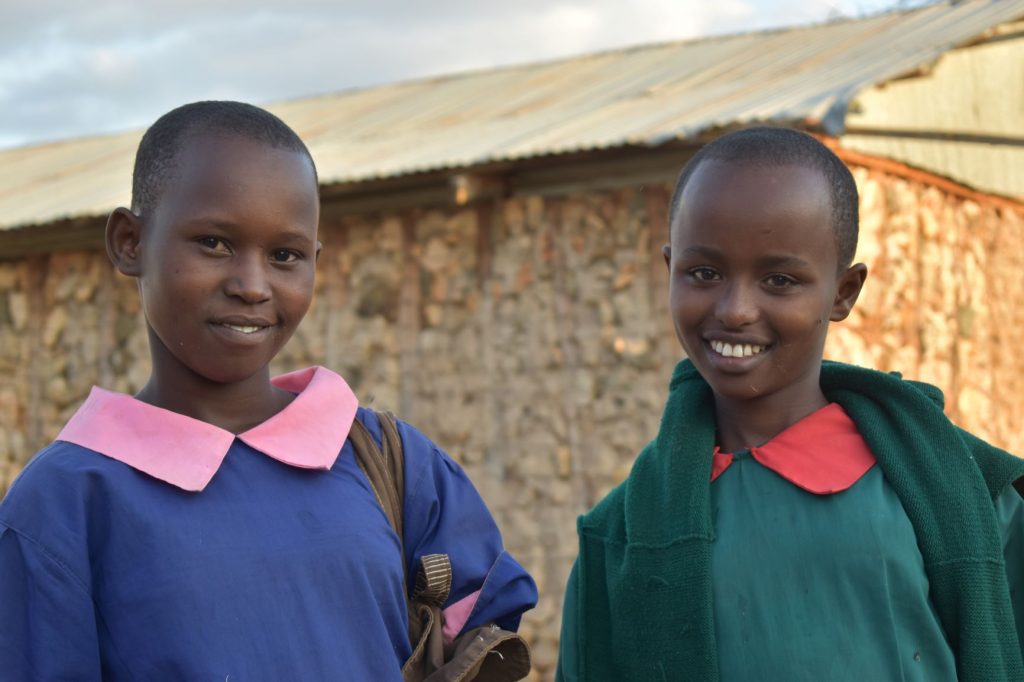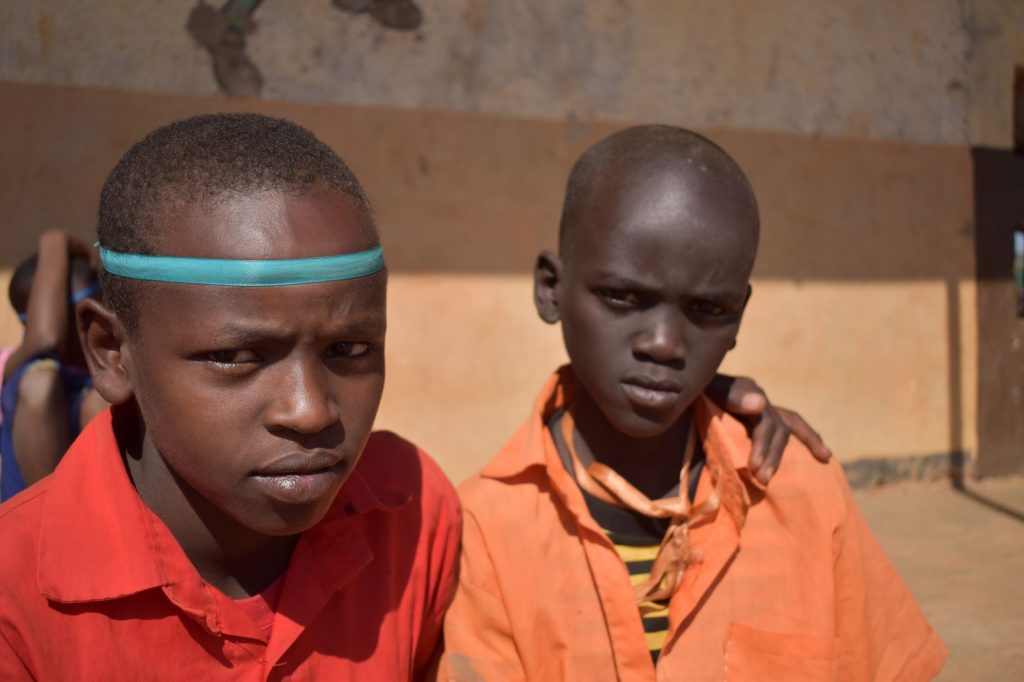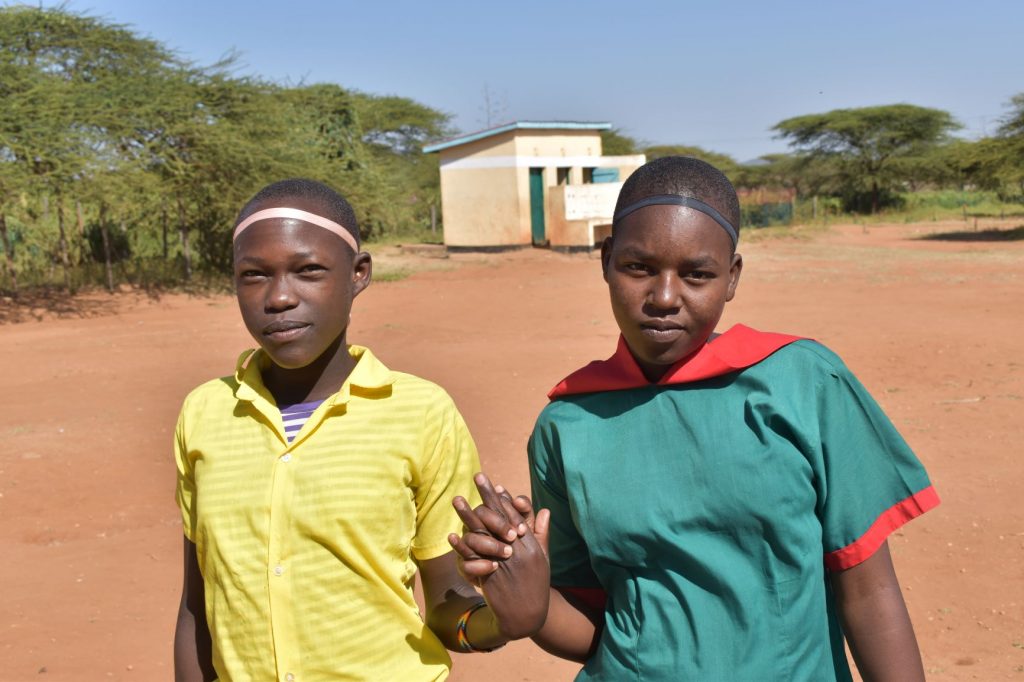As we get older, making new friends can be hard. We become fixed in our ways, we think we know who we are and who is worth our time, and we actively try to avoid the pain of our past. Children are different. Like raindrops rolling down an umbrella, bad experiences are easily forgotten in the expectation of fun and friendship.
The Zivik-CPI Kenya Peace Program in Baragoi takes advantage of the capacity of children to ignore the bad in favor of the good. This was highlighted during the 2019 Peace Camp at Bendera Primary School, located in a village that is only a short drive from the town of Baragoi. The Peace Camp brought together 250 children of two different ethnicities and opposite sides of a two-decade conflict. The children of the Turkana communities of Natiti, Nachola, and Lenkima were brought together with Samburu children of the communities of Bendera, Simiti, and Ngilai.
Prior to meeting, Children Peace Initiative Kenya surveyed the upcoming beneficiaries to better understand the children’s perspective on ethnic stereotypes and openness to friendship. The responses to the survey were sometimes startling. One girl cried as she recalled that her father had been killed by a member of the Turkana community. Another boy claimed that Samburu only like to kill. In summary, the majority of respondents expressed feelings of fear, anxiety, and anger when asked to reflect on the other ethnic group.

Despite the results of this survey, the Peace Camp proved that children can easily forget such feelings and bigotry when in a fun environment. Within hours of encountering each other, Linda Lokorio, a 12-year-old Turkana girl from Natiti Primary School, and Sanapai Lolenik, a 13-year-old Samburu girl from Bendera Primary School, could be seen walking and giggling together. The teachers and staff stood in awe. Without a single planned activity, friendship had found a way.
Upon arrival to the Peace Camp, the segregation of the children was easily visible. Masses of yellow and green, blue and pink, and red and orange were gathered together and moved like amoebas. The multi-color uniforms were like those of competing 18th century soldiers and made identifying your “group/clique” almost intuitive. However, just as dictated in the law of entropy, this order required immense energy… an energy that would be better used in the pursuit of fun.
And, just like that, Linda and Sanapai were not the only ones. The color-coordinated masses dissolved into each other within hours. The chattering of the children shifted from the two distinguishable languages of Samburu and Turkana to a collectively intelligible Swahili.

The following morning, the CPI Kenya staff and I went to observe and interrogate some of these blossoming friendships. The first friends that I found were Petro Aurien and Isaya Lemarkele. Petro hailed from the small Turkana village of Lenkima and the orange ribbon that signified his team (one sixteen interethnic teams for the games) hung around his neck like a tie, almost blending in with his orange school uniform. Isaya was far more talkative and outgoing. Maybe because he was coming from the host school or maybe because he didn’t want his new friend to feel pressured to speak. He explained how, as a Samburu boy he “didn’t know the Turkana”. Even more surprisingly, Isaya remarked on how he and Petro became friends within hours of arriving. This is surprising because prior to the camp, Petro had expressed strong sentiments against people of Samburu communities, influenced by peers and family members. However, the prejudice that had been ingrained into him over years of conflict and animosity melted away in mere hours.
In that morning, I had the opportunity to speak with countless friends before the morning program begun. Many of the friends had already given one another gifts. From jewelry to candy to juice, each gift represented a commitment to another person that could easily have been an enemy. Rose Ebaan, a 12-year-old Turkana girl old from Nachola, came to speak with me, her fingers laced with her new friend and a multi-color bracelet hugging her small arm. She told me that “Felistry Lolkalepi”, her new friend from Bendera, “gave this bracelet to me”.

These stories of individual friendships can easily build into a lasting peace. These children have chosen to rebuff the ethnicity-based hatred of their families, friends and communities. With their choice to see a companion in a person who has always been labeled as an enemy in their short lives, they are adding the last straw to the camels back and breaking down a system of intolerance and enmity.
If you feel inspired to support this program, please refer to the CPI Kenya GlobalGiving page dedicated to this project.
Posted By Benjamin Johnson (Kenya)
Posted Jul 12th, 2019


5 Comments
Abby Lahvis
July 15, 2019
I love this! It is amazing to see CPIK’s work produce such tangible results of friendship and harmony. It sounds like a great experience!
Emily
July 15, 2019
I love the pictures you’ve included Ben! This project is so innovative and inspiring and a pleasure to read about.
COLLEEN DENNY
July 15, 2019
Great blog Ben and I’m so happy to hear about another successful CPI Kenya Peace Camp!
iain
July 15, 2019
Ben – this is a really good blog! Love your profiles and your photos. Also, love the way you describe the SPEED with which kids shed their differences. Surely some lessons for us all in this day and age. Big questions are a) whether the kids will indeed change the views of their parents and b) whether these good vibes and friendships can be sustained. Hopefully, you’ll be able to reflect on this in blogs to come.
rachel wright
July 17, 2019
Ben, it was great to hear the individual stories of children within the program and how they shed their biases so quickly for friendship. Looking forward to more stories such as these!